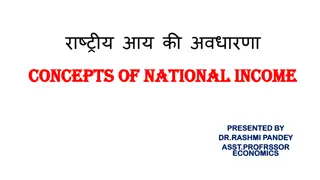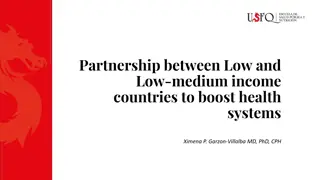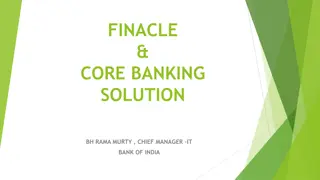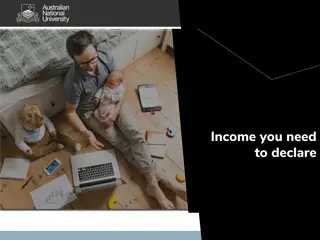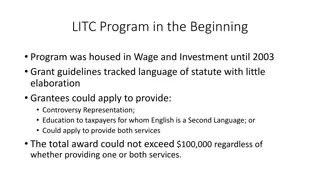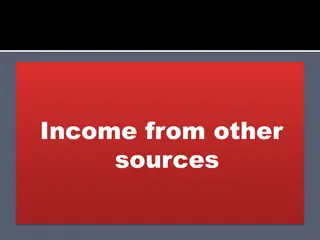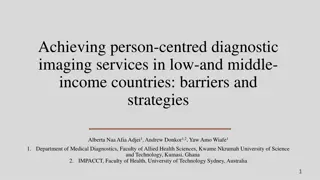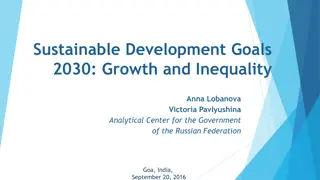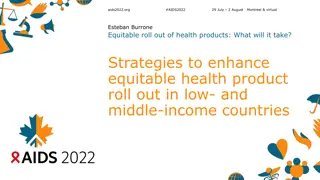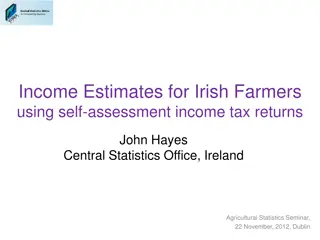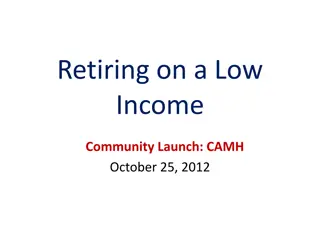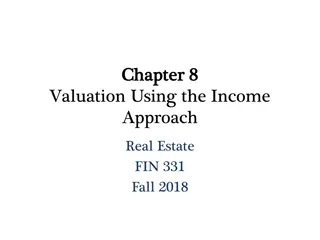Dissemination of CBS in Low- and Middle-Income Countries
This research project explores the obstacles, successful strategies, and perspectives related to disseminating Contextual Behavioral Science (CBS) in 11 countries across different continents. The study involves conducting interviews with psychologists who disseminate CBS, analyzing the data using thematic analysis, and identifying key strategies such as public events, academic integration, research, workshops, and translations to promote the dissemination of CBS.
Download Presentation

Please find below an Image/Link to download the presentation.
The content on the website is provided AS IS for your information and personal use only. It may not be sold, licensed, or shared on other websites without obtaining consent from the author.If you encounter any issues during the download, it is possible that the publisher has removed the file from their server.
You are allowed to download the files provided on this website for personal or commercial use, subject to the condition that they are used lawfully. All files are the property of their respective owners.
The content on the website is provided AS IS for your information and personal use only. It may not be sold, licensed, or shared on other websites without obtaining consent from the author.
E N D
Presentation Transcript
Dissemination of CBS in Low- and Middle-Income Countries Valeriya Sotnikova
Introduction My Independent Study aims to contribute to the research project Processes of Disseminating CBS in Low-and-Middle Income Countries by identifying obstacles, and successful strategies perspectives related to the dissemination of CBS in 11 countries. the main from strategies, interviewees The original research team is integrated by four members of The ACBS Developing Nations Committee: Claudette Foley, Cheryl Malek, Viliyana Maleva, and Suzy Adel. The supervisor of this Independent Study is Professor Felix Diaz.
Overview What is CBS? Methodology 01 02 04Conclusion 03 Results
01 What is CBS?
Contextual Behavioral Science (CBS) A multi-level system of philosophical assumptions, scientific values, and methodological commitments Evidence based Psychological therapies: ACT (Acceptance Commitment Therapy) RFT (Relational Frame Theory)
02 Methodology
Methods Thematic Analysis addressing key questions Interviews Researchers conducted 16 interviews with psychologists who disseminate CBS in their contexts Coding in MaxQDA MaxQDA is a qualitative research tool. Transcription of the Interviews Filippos Kinigopoulos (3) and me (13) 16 hours 100,500 words
Interviewees from 11 countries Europe Romania Poland Cyprus Asia Malaysia India South America Colombia Peru Brazil Africa South Africa Sierra-Leone Uganda
03 Results
The main strategies for the dissemination of CBS Public Events Universities Dissemination through the academic route as integrating CBS into the course curriculum and giving lectures Research Conducting research related to CBS and its use in different spheres of life 16/16 15/16 Workshops, conferences, public lectures, training, courses, etc. Translation and production of materials 11/16 11/16 Members of chapters write and translate different materials such as books, manuals, guides in their native language.
Other strategies for the dissemination of CBS 8/16 8/16 Clinical and Private Practice Internet Dissemination of CBS through websites and social platforms such as YouTube, Facebook, and Instagram Psychologists use approaches under the CBS umbrella with their patients in private and clinical practice. For example, ACT (Acceptance Commitment Therapy)
The main obstacles to CBS dissemination Financial support CBS Chapters are NGOs, so they do not enough funds to organize events, invite trainers, and deal with legal documents 1 3 Regulations 10/16 8/16 There are unique rules and regulations that a chapter need to follow to operate. Sometimes those rules oppose the rules of a country Cultural and Language barriers 4 2 Certification 8/16 8/16 Cultural interpersonal differences, no ACT/CBS vocabulary in other languages rather than English or it is not developed There are official rules regarding obtaining the certification (sometimes too strict, sometimes not strict enough)
Running a website with free resources in a developed country is a huge step in having people access that information. In a developing country running a website with free resources may not necessarily result into uptake. Khamisi Musanje, Uganda
But in Malaysia it [CBS] can't grow organically because of all the certification process and it's too expensive and all that kind of stuff. So if we have too much of that [certification] it's just going to inhibit growth. Wendy Shoesmith, Malaysia
What Works? Networking 10/16
Other factors that impact successful dissemination of CBS Having high quality credible trainers 1 3 4/16 3/16 Being Patient Being sensitive to context (culture) Being passionate about ACT and CBS 2 4 6/16 3/16
04 Conclusion
Conclusion The results suggest that context sensitivity and appropriateness are vital factors in the successful dissemination of CBS. Overall, this study provides some valuable insights into the dissemination of CBS in LMIC countries and can be used to suggest potential strategies for CBS dissemination in other LMIC countries. Further research is needed to explore these findings in other countries and among a larger sample of participants.
Thank you! Credits: This presentation template was created by Slidesgo, and includes icons by Flaticon, and infographics & images by Freepik


